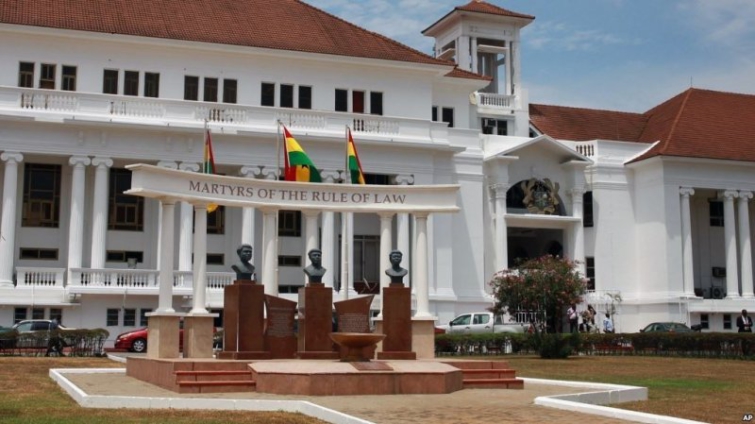The ruling of the Supreme Court which has affirmed the voting rights of presiding Deputy Speakers could be a nullity, Prof. Kwaku Asare has argued.
The Private Legal Practitioner asserts that this is so because Parliament was not represented in the suit.
He argues that since the outcome of the decision is to strike down a Standing Order of Parliament, the House ought to have been represented.
The unanimous decision of the apex court also affirmed that the presiding Deputy Speaker can be counted to meet a quorate number for decision making.
The decision follows an action by Justice Abdulai which sought interpretation of Articles 102 and 104 of the Constitution, 1992.
Article 102 provides that at any sitting, a quorum must be 1/3 of all members except the person presiding.
For decision making however, 104(1) provides that the quorum be half of all members present…
The Supreme Court adjudged that once the Constitution placed no bar on the person presiding in 104 as it did in 102, a presiding Deputy Speaker should maintain their quorate and voting status for purposes of decision making.
This decision is at variance with Order 109 (3) of the Standing Orders of Parliament.
For this reason, Prof Asare who is noted for his activism in the legal space of the country, says the absence of the House as a party to the matter raises doubts to the validity of the outcome.
Article 2 (1) and Article 88 however, makes the Attorney General the party against whom such matter be filed.
Speaking on the show, CDD boss, Prof Kwesi Prempeh noted that due to the adversarial nature of Ghana’s legal system, and the fact that the A-G is a servant of the Executive, it is possible the A-G’s interest would be at variance with that of Parliament.
To that extent, the CDD boss said he agreed with Prof. Asare’s position that Parliament was not properly represented in the case that has now declared part of its Standing Orders null and void.
He, however, disagreed that the Supreme Court’s decision is a nullity.
According to him, the House had an option to join the suit as a party although the Constitution did not make it a direct party.
The House has been asked to take steps to rectify its standing orders.
Meanwhile, Justice Abdulai has served notice of asking for a review of the decision.
Latest Stories
-
Ten dead as navy helicopters collide mid-air in Malaysia
18 mins -
Kwadaso Onion Market: Traders relocated over security concerns
26 mins -
Organise your dumsor demo, we’ll choose who to partner for ours – Franklin Cudjoe tells Yvonne Nelson
31 mins -
Government to consolidate cash waterfall revenue collection accounts
42 mins -
‘Otumfuor is one of Kotoko’s biggest issues’ – Nana Agyemang
46 mins -
Bawumia travels to Italy and Vatican State
59 mins -
Bellingham wins Laureus Breakthrough award
1 hour -
2024 polls: Haruna Iddrisu predicts NDC victory in all 11 Upper West parliamentary seats
2 hours -
GPL: Berekum Chelsea beat Medeama to go fifth
2 hours -
Debt Restructuring: Government to reach agreement with IPPs in May
2 hours -
It’s time for Ghana to move from NPP and NDC – Abu Sakara insists
2 hours -
NCCE launches 2024 Annual Constitution Week in Kumasi
2 hours -
Dumsor: Yvonne Nelson criticises Akufo-Addo for taking Ghanaians for granted, proposes another vigil
2 hours -
GFA appoints Zito, Preko and Amadu to take charge of newly-formed male national teams
2 hours -
Government committed to enhancing the condition of roads in Kumasi – Asenso-Boakye
3 hours

